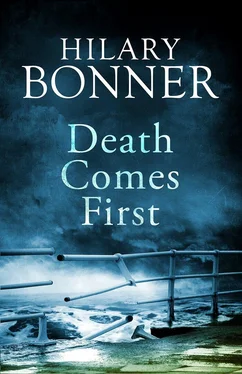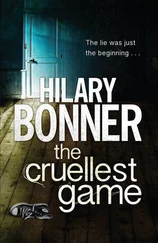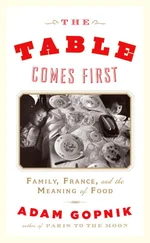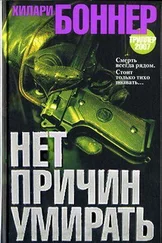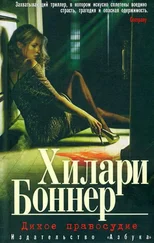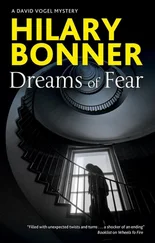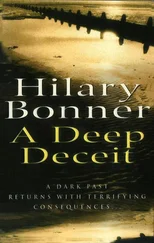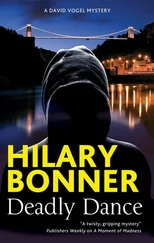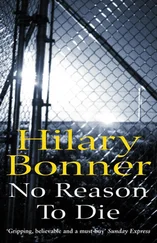The defence dismissed Mark’s references to covert activity on behalf of the British government as being merely fanciful, and the judge ruled inadmissible as hearsay any reference to it, in terms of Mark’s mother having related to him what his father had allegedly told her.
Charlie Mildmay could no longer speak for himself. A week after his near drowning, and without ever recovering consciousness, he had suffered an aneurism, brought on by his brain being deprived of oxygen when he had stopped breathing. And this time Charlie Mildmay was definitely dead.
Joyce Mildmay was unable to be called to give evidence by either the prosecution or the defence, whether she might have wanted to or not. She was a broken woman who had spent the eight months since the violent death of her daughter and her youngest son in and out of various clinics and mental institutions.
Her doctor was called to the stand as an expert witness, to give evidence on the mental state of both Joyce and her mother Felicity. Felicity was almost as ill as her daughter, and had taken up residence in a Bristol nursing home. On the basis of the doctor’s testimony, neither woman was called to give evidence.
Henry Tanner did take the stand. Since the shooting and the destruction of his family he had lived alone at the Corner House, rarely going out, and with only Geoff Brooking, the driver DCI Clarke had always suspected as being rather more than that, in occasional attendance.
Stephen Hardcastle had been banned from personal contact with Henry, as a condition of his bail, until the impending legal proceedings were concluded.
Henry was incoherent, resolutely vague about the nature of the Tanner-Max arms brokerage, and seemingly unable to remember anything. He even claimed he couldn’t remember whether or not he had seen Charlie’s letter before it was ultimately delivered to his daughter.
He was a terrible witness. Vogel wondered whether it was yet another performance. Perhaps his last performance. Desperately maintaining a lifetime’s discretion regarding the covert activities of his company.
Henry might not be the man he was, but now that his family had abandoned him, Tanner-Max was all he had left. Perhaps he remained determined that his legacy should survive. Which meant he needed Stephen Hardcastle — now the boss of Tanner-Max and the one man who could keep the business going — to be cleared of the charges against him.
To the annoyance of Clarke, Vogel, and the whole Operation Binache team, the attempted murder charge against Hardcastle was reduced to grievous bodily harm.
Hardcastle was found guilty by majority verdict on that and the two other remaining charges, and sentenced to eight years in jail.
For Vogel, the best thing about the trial and its conclusion had been the look of absolute surprise on Stephen Hardcastle’s face when the guilty verdict was read out by the jury foreman.
Vogel had no doubt that the man’s self-delusion was such that he had believed he would get away scot-free.
Throughout the proceedings, both prosecution and defence seemed content to allow the involvement of Tanner-Max in the international brokerage of defence materials to be presented as a transparent part of Britain’s thriving and legitimate armaments industry. Only Mark Mildmay even attempted to suggest anything other, and his evidence was struck from the record.
There was no further mention in court of British government involvement, of encrypted phone calls, of covert deals and counter deals, of shipments of arms being dispatched to secret destinations worldwide in such a way that no one would ever know who dispatched them. Neither was there even the slightest whisper of Mr Smith.
DCI Clarke, still officially stationed in London, had, when necessary, commuted to and from Bristol throughout the proceedings, sometimes staying overnight at the Royal Marriott. On the last day of the trial, after Hardcastle had been sentenced, she insisted Vogel return with her to the Marriott for a large drink.
The guilty verdict was a result, and Hardcastle’s immediate reaction had been most satisfying. But both officers were dissatisfied with the sentence that had been meted out.
‘You’re not going to stick to bloody lemonade or whatever it is you put away after that, Vogel, are you?’ Clarke asked as they walked into the same bar they’d been in when the news had come through about the tragic incident at the Floating Harbour.
Vogel shrugged. He didn’t even like the taste of alcohol. And he doubted it would take away the anger he felt at Hardcastle’s punishment, or lack thereof.
‘Eight years — that means the bastard’ll be out in five,’ he grumbled. ‘After all that work to get a guilty verdict! I’m seriously brassed off, boss.’
‘Aren’t we all, Vogel,’ murmured Clarke laconically.
She didn’t seem to have a lot to say. She had a different way of dealing with her disappointment.
‘Get me another drink, Vogel,’ she instructed.
He did so. Then continued to grumble.
‘It’s been yet another damned cover-up, barely a mention of what lay behind it all: the shady goings on of our bloody government, and your flippin’ Mr bloody Smith.’
‘She’s not my Mr Smith,’ said Clarke.
‘Well, he, she or it sure as hell ain’t mine.’
‘Oh grow up, Vogel,’ instructed the DCI.
She knocked back four large malts in quick succession whilst Vogel looked on in amazement. He knew she liked a drink, but he’d never seen her drink like this before. He was so gobsmacked he didn’t even make a move to leave.
Clarke got drunk quickly. More quickly than Vogel had ever seen anyone get drunk. But, he thought, if you pour whisky down your throat at that speed, something is bound to happen.
‘Know what, Vogel, if you weren’t shuch a boring old happily married fart, I’d take you upstairs with me — I would, honest,’ Clarke said, her words not entirely clear.
Vogel blushed and began blinking furiously behind his spectacles. He so wished he didn’t do either.
‘Would you?’ he asked, not sure whether she was joking or not.
He’d been going to address her as boss, like he always did. Under the circumstances, though, that didn’t seem right. But he could never call her Nobby. How could any man address a woman like her as Nobby?
‘Ma’am,’ he added lamely, and immediately wished he hadn’t.
Her eyes narrowed.
‘Yep,’ she said. ‘I would.’
She leaned forward conspiratorially.
‘But only if you’d call me “ma’am” in bed. All right?’
Vogel’s blush deepened. His blink rate increased. In common with most of her colleagues he knew next to nothing about DCI Clarke’s private life. The rumour, based on her being spotted by one of the biggest gossips in her old MIT unit strolling through St James’s Park with an arm across the shoulders of another woman, whom she had also been seen with on more than one other occasion, was, of course, that she was gay. And this woman was clearly her life partner.
‘Aren’t you spoken for, ma’am?’ he asked, more directly than he’d intended.
‘Yep,’ she replied, grinning wickedly.
Vogel found more courage. The boss was drunk, after all. He could probably get away with saying anything.
‘And you share your life with a woman, don’t you? Aren’t you gay?’
‘Ah ha!’
Clarke leaned close to him.
‘Only on Mondays, Wednesdays... oh, and weekends,’ she said.
‘Right.’
‘And today is Thursday.’
‘So it is,’ said Vogel.
He didn’t know what else to say.
Nobby Clarke’s grin widened.
‘I’m joking, you bloody fool!’ she said. ‘You didn’t think I was that drunk, did you?’
Vogel had a feeling he should be insulted. Mostly he was relieved.
Читать дальше
